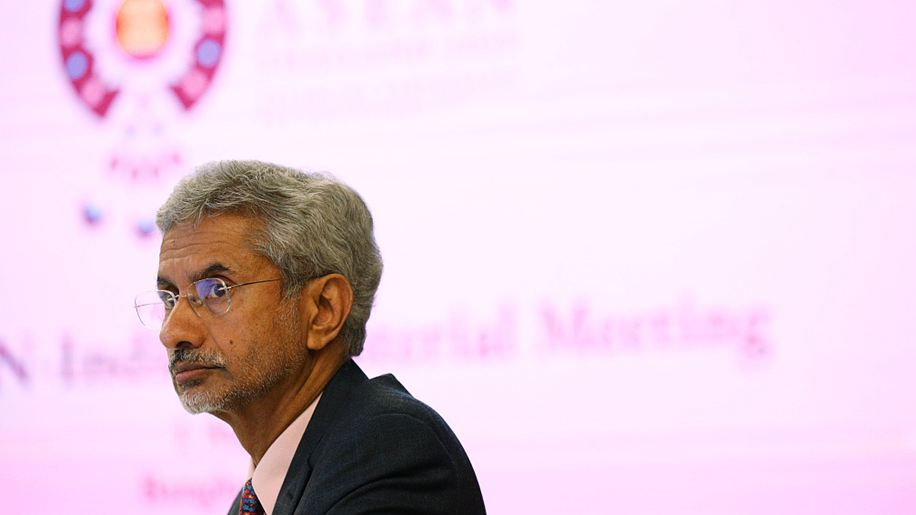

Shanghai ranks No.1 when it comes to attracting investment from Indian companies. Photo: VCG
Despite the ongoing U.S.-China trade tension and India’s sluggish economic growth, a number of Indian companies which have been doing business in China, have sounded bullish on their prospects in the Chinese market as per a just-released industry survey.
The survey, conducted by India’s leading business association, Confederation of Indian Industry (CII), and Evalueserve, a global professional services provider offering research, analytics, and data management services, has found that most Indian companies present in China are planning to continue to invest in China in 2019.
About two-thirds of respondents said that their business was ‘profitable’ or ‘very profitable’ in 2018 and 30 percent of the participating firms generated revenues of over 100 million yuan (14.2 million U.S. dollars) in 2018 while 79 percent stated that revenues either remained stable or rose in 2018.
Incidentally, India's economic growth has slowed to 6.8 percent in 2018-19, the slowest pace since 2014-15 while the country dropped to 7th place in the list of the world’s biggest economies. Also, different projections by various private experts and the central bank have estimated that India’s GDP growth in the current year is expected to be less than government estimates of 7 percent.
Rising optimism and growing confidence in Chinese market
However, the latest survey – the second such of its kind to date – yielded a positive outcome and optimistic forecast for Indian companies in China. While speaking on the survey, Chandrajit Banerjee, Director General, CII, said, “The survey of Indian companies working in China shows cautious optimism and confidence as compared to the previous survey last year. Most companies do not see significant impact of the current trade situation between the U.S. and China on their business.”
According to the survey, titled “Business Climate for Indian Companies in China,” and compiled by drawing responses from 57 Indian companies in China, 98 percent of the respondents plan to make some investment in China in 2019 with two-fifths considering ramping up their investment over 2018. In fact, more IT and business process outsourcing (BPO) companies are expected to make additional investment in 2019 compared to 2018.
Kamal Dhuper, Chairman, CII India Business forum, China and President, NIIT (China) Ltd, mentioned, “The CII-Evaluserve survey is an attempt to continuously gauge the performance of Indian companies in China, to understand the challenges they face and help Indian companies and Indian CEOs prioritize their resource allocation to their China engagement.”

Indian IT companies felt that China’s innovation is more favorable than the worldwide average. Photo: VCG
Shanghai has attracted the lion’s share of the investments from the Indian companies as 72 percent of those chose the municipality as the most-preferred destination. “The results of survey clearly indicate that the deep economic relationship between India and China will continue to grow. It is evident from the growth plans that Indian companies have for the Chinese market,” remarked Sumeet Chander, Greater China Country Head of Evalueserve.
Defying the China-U.S. trade tensions
Notably, the survey, which provides insights into respondents’ locations, business activities, investments and performance, has highlighted that 74 percent of the companies felt no impact on their business in the trade friction involving China and the U.S..
Dr Swaran Singh, Professor of International Relations at New Delhi’s Jawaharlal Nehru University (JNU), told CGTN, “Enduring U.S.-China trade war has opened new avenues for China enhancing its economic partnerships with India. This is triggering not only a continued boost for their bilateral trade but also mutual investments. This survey also showed as many as 98 percent firms planning to invest in China while 39 percent planned to boost their investments.”
Citing the reasons behind the upswing, Professor Singh, an eminent expert on Indo-China relationships, pointed out, “It is high profitability that defines the positive environment for Indian companies taking greater interest in investing in China who feel attracted by China's world class infrastructure and efficient bureaucratic apparatus. Indian companies on the other hand bring to China advantage in several niche sectors that can step in to redress China's growing discomfiture with U.S. firms increasing assertions that have been both cause as also consequence of President Trump's bullying of China. Indian companies also bring cost-effectiveness and potential for opening up Indian market for China.”
Challenges ahead & a broader mutual cooperation
However, it’s not all hunky dory for the Indian companies in China as they are facing a slew of challenges like the rising labor cost, finding and retaining talent and stricter regulations being the top cited issues in the survey while macroeconomic policy adjustments, obtaining required licenses and environment protection policies are the other main concerns for the Indian firms regarding overall business environment in China.
“As for challenges, other than language and cultural as also sporadically political issues becoming minor hurdles most companies continued to face challenge of Chinese competitiveness, scale and speed especially in manufacturing sector. This makes India's services and information technology firms far more comfortable in investing in China,” Professor Singh explained.
The companies, however, felt that China’s innovation is more favorable than the worldwide average while the quality of products and services continues to be a key success factor in the world’s second largest economy at a staggering 14 trillion U.S. dollars. Operations efficiency followed by quality of management team, brand and awareness creation and R&D and product innovation have been cited as the other success factors the Indian companies’ growth in China.
Set for a new era & stronger partnership
Emphasizing that the Chinese side should take steps to address this issue including by enabling greater access for India's pharmaceutical and IT products and services in the domestic Chinese market, India’s External Affairs Minister Dr Subrahmanyam Jaishankar stated during his last week’s visit to China, “The Informal Summit between Prime Minister Modi and President Xi Jinping in Wuhan in April 2018 was a historic meeting that has provided positive direction to our relations. There is mutual agreement that as two of the largest and fastest growing developing countries, representing almost one third of the global population, stable and balanced development of our relations will not only be beneficial for our two peoples, but also a factor of stability in this uncertain global environment. Our two countries have similar goals in terms of providing better opportunities for our peoples.”

India's Foreign Minister Subrahmanyam Jaishankar attends the ASEAN Foreign Ministers’ Meeting in Bangkok, Thailand August 1, 2019. Photo: VCG
In the wake of the bolstering bilateral relations since the Wuhan summit, about 70 percent of the respondents to the CII survey are quite confident that their operations will see success in the next five years while more than 80 percent of industrial manufacturing, IT&BPO, logistics, consumer goods, telecommunications, chemicals and business consulting companies are positive about their success in the mainland. Meanwhile, more than 80 percent of wholly foreign-owned enterprises have been found to be confident about the success of their operations in China over the next 5 years.
With the Chinese president visiting India later this year and the two neighboring countries set to celebrate 70 years of establishing diplomatic relations next year, the survey will surely give some much-needed impetus to bilateral trade and commerce, raising hopes for a greater and stronger business and economic partnership and cooperation in the coming days.

Copyright © 2018 CGTN. Beijing ICP prepared NO.16065310-3
Copyright © 2018 CGTN. Beijing ICP prepared NO.16065310-3